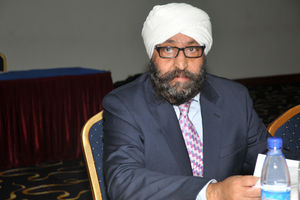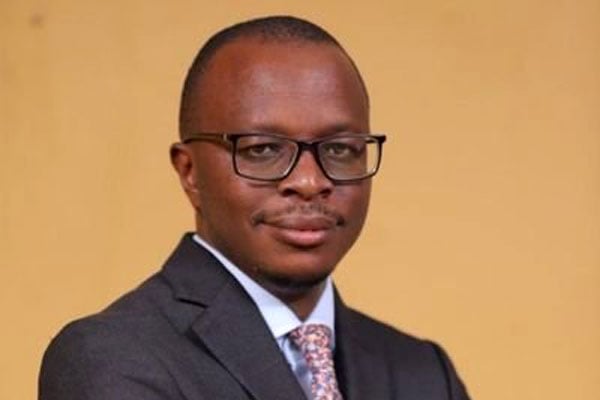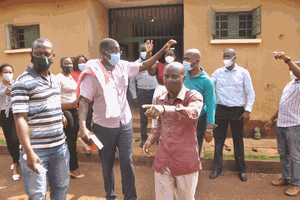
High Court Judge Musa Ssekaana
In a landmark decision that has set a new precedent, a High Court judge has ruled in favour of GP Advocates over Attorney General (AG) Kiryowa Kiwanuka, affirming the enforceability of mandatory legal fees.
Justice Musa Ssekaana ruled decisively against the AG’s attempt to obstruct the payment of mandatory legal fees by clients to their legal representatives.
“The Ministry of Information Communication Technology and National Guidance, or any other Government Ministry, is obligated to pay applicants 20 percent of the pension arrears due to the former employees of Uganda Posts and Telecommunications Corporation (UPTC), as computed by the Auditor General and detailed in his August 2022 report on the verification of terminal benefits,” Justice Ssekaana ruled, referencing the case HCCS No. 791 of 2004, Asiimwe Vicent & Another vs AG.
The ruling has been hailed by lawyers nationwide as a pivotal affirmation of their right to fair compensation. One lawyer described it as “a momentous occasion that upholds the integrity of legal practice and ensures that clients adhere to their financial commitments.”
Represented by George Omunyokol and Vincent Asiimwe, the lawyers expressed their gratitude to Ssekaana for quashing AG Kiwanuka’s attempt to overstep his bounds. Despite a vigorous defence mounted by the AG, represented by State Attorney Allan Mukama, the High Court’s decision was unequivocal. The AG’s challenge was premised on the argument that he was neither privy to nor aware of the agreement between GP Advocates and their clients. He also argued that the deduction of 20 percent from pension benefits contravened the court’s judgment to pay pension to the plaintiffs.
AG Kiwanuka further contended that such an agreement was not contemplated by law and indicated that his office had verified 373 of 427 claimants, concluding a net terminal benefit of Shs10,673,287,771 as of June 30, 2020.
Lawyers have criticised the AG’s stance as not only legally unsound but also professionally questionable. They argue that his interference in the management of client fees oversteps his authority and contravenes the professional boundaries of his role.
Amidst the jubilation following the High Court’s ruling, many lawyers have expressed frustration over the Uganda Law Society’s (ULS) conspicuous silence on the matter. The ULS, expected to advocate for the rights and interests of its members, remained notably reticent throughout the AG’s challenge and only made acknowledgement after Justice Ssekaana’s judgment.
Conflict of interest concerns have been raised about AG Kiwanuka, who is a practising lawyer with K&K Advocates. His fellow lawyers have taken exception to the propriety of his attempts to regulate fees within the ambit of legal practice.
Both AG Kiwanuka and Bernard Oundo, the ULS president, were unavailable for comment by press time.
GP Advocates successfully represented 427 former employees of UPTC, who had served more than 10 years and were aged over 45 as of March 15, 1993, when the entity was privatised. The court had previously ruled in their favour on February 5, 2013, entitling them to prompt and full payment of their terminal benefits, pension, and arrears.
Following the AG’s verification and recomputation of pension arrears, the applicants deemed the figures insufficient and sought recomputation, as reflected in the August 2022 report.
Traditionally, the government has paid pension arrears to lawyers who, in turn, disbursed the amounts to clients, deducting their fees in the process. However, on advice from AG Kiwanuka, the Ministry of ICT and National Guidance decided to pay these arrears directly to the clients’ accounts, jeopardising the lawyers’ mandated 20 percent fee. The lawyers sought judicial intervention as some arrears had already been disbursed to clients under the ministry’s directives.
In delivering the verdict in late July, Justice Ssekaana provided four solid grounds supporting the validity of the mandatory legal fees, grounding his decision in established legal principles and citing the landmark case of Matovu Advocates vs Attorney General (Court of Appeal Civil Application No. 560 of 2022), which dealt with similar compensation issues.
Ssekaana’s ruling not only affirms the current judgment but also reinforces the broader legal framework governing attorney-client financial obligations.
The case, registered under Section 98 of the Civil Procedure Act, Section 33 of the Judicature Act, and Order 52 Rules 1 and 3 of the Civil Procedure Rules, sought judicial orders to enforce these fees and validate the contractual agreements between GP Advocates and their clients.




